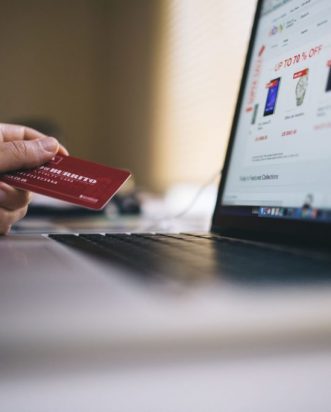Brandi B. Reynolds, CAMS-Audit
As we make our way through International Fraud Awareness week, it’s important to recognize the impact on fraud schemes brought on or enhanced by the pandemic. Vulnerable consumers have lost thousands, if not millions, of dollars to scams in 2020.
Consumer scams during the pandemic have spiked due to two main contributing factors:
- Social isolation, especially for vulnerable populations
- Increase in screen time
Fraudsters are keenly aware of the impacts from the pandemic on vulnerable populations and continue to pummel them with scam attempts via phone calls, social media clickbait, and email phishing attempts – all designed to get innocent people separated from their money.
While organizations such as the ABA, FinCEN, CFPB, AARP, and even local television/radio media outlets have done a great job at communicating anti-fraud measures to consumers, this battle will only be won by the efforts of individuals – sons, daughters, neighbors, friends, clergy, community leaders – to continually educate and remind vulnerable populations about the fraud avoidance techniques.
Helpful Links from Pro-Active Organizations
- https://bankingjournal.aba.com/2020/10/aba-launches-national-anti-phishing-campaign-together-with-1500-bank-partners/
- https://www.fincen.gov/sites/default/files/advisory/2020-07 07/Advisory_%20Imposter_and_Money_Mule_COVID_19_508_FINAL.pdf
- https://www.consumerfinance.gov/consumer-tools/fraud/
- https://www.aarp.org/money/scams-fraud/info-2020/coronavirus.html
Call to Action this Week
- If you see an anti-fraud posting on social media (such as Facebook) from a reputable organization, such as the ones listed above, please reshare it to your connections.
- Go one step further and send the posting to a friend in a message, along with your personalized message. “This week is International Fraud Awareness Week, just looking out for you.”
- Post your own personalized message about anti-fraud techniques on social media.
- Have a conversation with mom and dad, grandma and grandpa, and even your favorite aunt about the techniques fraudsters use. Consider role-playing a scenario via phone, via email, and via social media.
Below are some messages to convey in your personalized messages:
- Only answer calls from phone numbers you recognize. Let other calls go to voicemail, no matter how many times they call back.
- Be especially cautious about phone calls that appear to be coming from a local exchange. Fraudsters who are spoofing a phone number will select one with the same area code and 3-digit exchange, to make it look like a local call or someone you know.
- Ignore voicemails that indicate they are from the IRS or Social Security Office. Ignore voicemails that say they’re from “your cable company” or “your electric company” in generic terms without mentioning the exact company. Those are generic voicemails designed to dupe anyone. Even if an exact company name is used, do not be duped by messages that say “we have a large refund for you due to a billing mistake but we have to place it directly in your bank account, can you give us credentials to your online banking or information on your bank account?” Ignore voicemails that indicate you owe a large debt and misfortune will come to you and your family if it is not paid right away. Ignore voicemails that indicate they have information on your prior misdeeds and will share publicly if you don’t pay a large amount of money. Ignore voicemails that ask you to pay for anything using gift cards.
- Ignore all pop-ups that appear online, especially when reading through a story posted on social media. You get to page 3 and all of a sudden, a pop-up appears that informs the user that their PC has been hacked and they must click here to fix it. Advise just shutting off the computer first.
- Ignore “order confirmation” emails, especially the ones that have a special box to click on to “report spam.” Ignore emails that indicate your account has been locked out or any other email that requests your account information.
- Ignore checks that mysteriously show up in the mail. They are likely fraudulent. You deposit them, wire money (or purchase gift cards, and read the numbers to the fraudsters) and then the checks bounce, and you are out of the money.
If you are a financial services provider and you are interested in an anti-fraud training program for consumer fraud, please reach out to contact@batesgroup.com.



